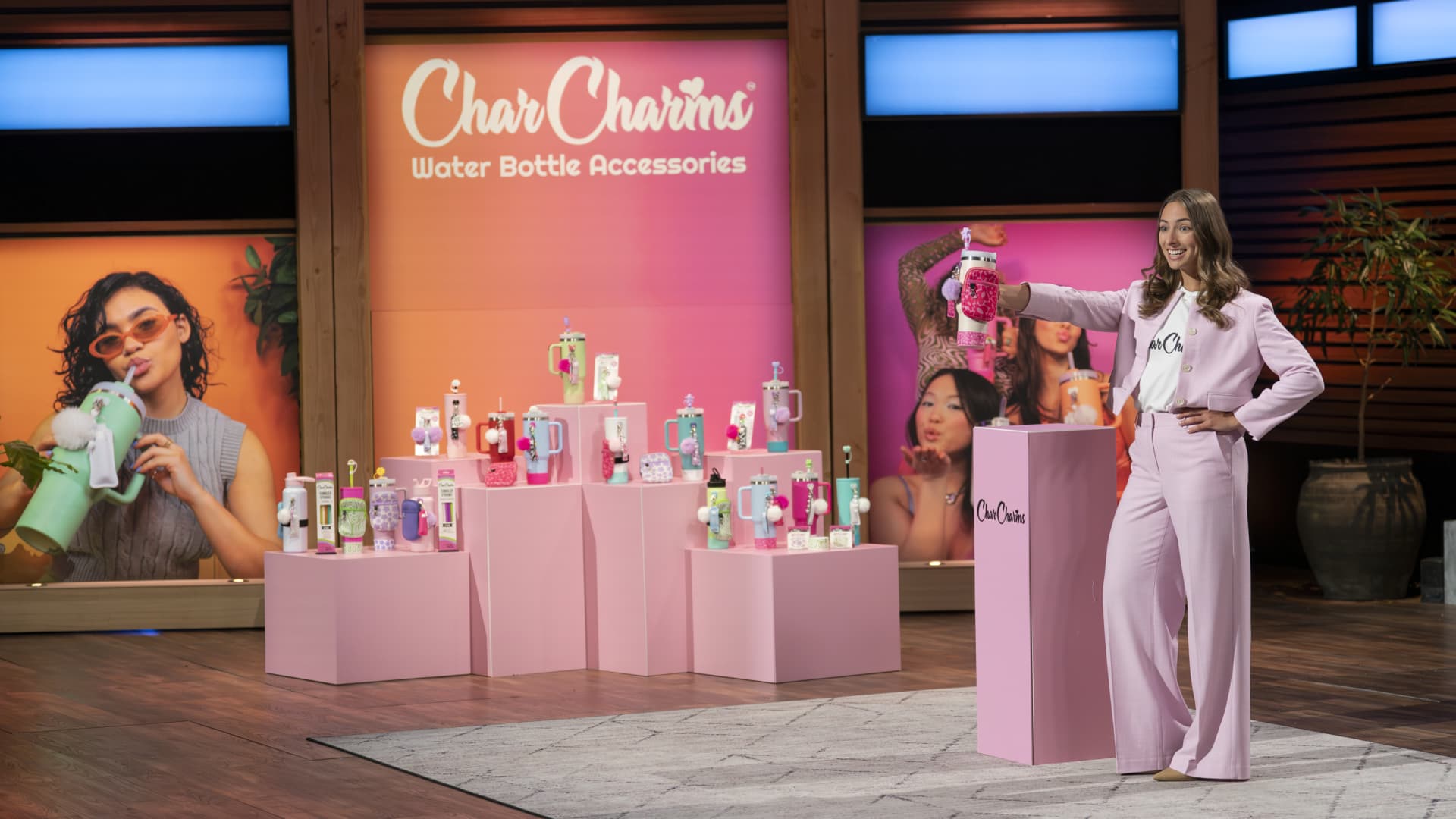Shortly after graduating from the University of Illinois, Charlotte Trecartin hired a TikTok coach for $400 per month, she says.
She wasn’t trying to grow her personal brand: Under the coach’s guidance, Trecartin started posting three times per day about her water bottle accessory company CharCharms. Her account grew to 80,000 followers, grabbing the attention of retailers like Dick’s Sporting Goods and Target, where CharCharms’ products sit today.
Trecartin, now 25, brought those products — which include straws, straw toppers, and charms and pouches that attach to water bottles — to ABC’s “Shark Tank,” in an episode that aired on Friday. They quickly drew skepticism from investor judge Kevin O’Leary, who said, “There’s a lot of crap like this on the market.”
Yet CharCharms was on track to make millions in profit last year, at the time of filming, Trecartin said. She declined to share exact profit figures for 2024, but tells CNBC Make It that her business brought in $6.5 million in revenue last year.
“Do you still think it’s crap now, buddy?” guest judge Kendra Scott asked O’Leary.
DON’T MISS: How to use AI to be more productive and successful at work
Trecartin asked the show’s judges for $300,000 in exchange for 10% of CharCharms, saying she wanted a “partner” who would “invest in me” just as much as the business itself.
O’Leary offered $300,000 for 25%, citing concerns about distribution. Daymond John offered $300,000 for 20%, saying he saw opportunities in licensing with big brands.
The other Sharks weren’t quite so convinced.
Avoiding two ‘predatory’ investment offers
Trecartin’s top two takeaways from working with her TikTok coach, she says: Post frequently, and use playlists to organize her videos as a way of attracting users who want to follow specific niches.
Those lessons helped her grow CharCharms’ customer base. But Scott, the founder and CEO of her namesake jewelry brand, worried about the practicality of the accessories: “As a mother of six children, we go through water bottles in lost and found every day. This is just more stuff that they’re going to lose,” she said.
Scott declined to make an investment offer. So did Lori Greiner, who said she didn’t know the market particularly well. Mark Cuban also withdrew from consideration, but told Trecartin that John’s and O’Leary’s offers were “predatory.”
“Whether it’s 20% or 25%, you’re going to write them a check right back based on the profits,” Cuban said.
Trecartin offered O’Leary and John a 12.5% stake in CharCharms. O’Leary dropped his proposal to 20%, and John went down to 17.5%. Both were too high for Trecartin, who wasn’t willing to part with more than 15% of her company.
She ultimately left the show without a deal — but CharCharms’ sales have risen in the four days since the episode aired, and Trecartin is evaluating new retailer and licensing opportunities, she says.
“I would do it again,” says Trecartin. “I’m actually hoping that another brand pops into my brain, so I can apply [to ‘Shark Tank’] again.”
Want to up your AI skills and be more productive? Take CNBC’s new online course How to Use AI to Be More Successful at Work. Expert instructors will teach you how to get started, practical uses, tips for effective prompt-writing, and mistakes to avoid. Sign up now and use coupon code EARLYBIRD for an introductory discount of 30% off $67 (+ taxes and fees) through February 11, 2025.
Plus, sign up for CNBC Make It’s newsletter to get tips and tricks for success at work, with money and in life.





